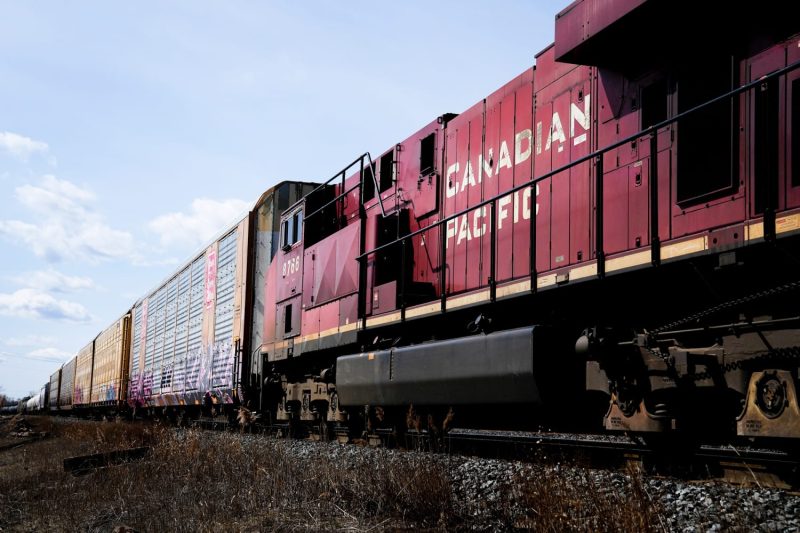The possible work stoppage at Canada’s two largest railroads, Canadian National (CN) and Canadian Pacific (CP), has raised concerns about potential disruptions to the U.S. supply chain. A labor dispute could have far-reaching consequences, impacting various industries that rely on these railroads for the transportation of goods.
The U.S. is heavily dependent on the Canadian rail network for the movement of goods across the border. CN and CP play a crucial role in connecting the U.S. Midwest and East Coast with key Canadian markets, including Toronto, Montreal, and Vancouver. Any interruption in their operations could lead to delays in the delivery of essential supplies, causing ripple effects throughout the supply chain.
The automotive industry, in particular, could be severely impacted by a work stoppage. Many car manufacturers in the U.S. rely on Canadian railroads to transport parts and finished vehicles between production facilities and dealerships. Any disruption in rail service could result in production delays, inventory shortages, and increased costs for manufacturers.
The agriculture and food sectors are also vulnerable to the potential consequences of a rail strike. Canadian railroads play a significant role in transporting grain, livestock, and other agricultural products to the U.S. market. A work stoppage could lead to a backlog of shipments, affecting farmers, food processors, and ultimately consumers who depend on a steady supply of food products.
Moreover, the energy industry could face challenges if rail operations are halted. Canadian railroads transport a substantial amount of crude oil and petroleum products to the U.S. Refineries and other energy facilities rely on these shipments to maintain their operations. A disruption in rail service could lead to supply shortages, affecting energy prices and availability in the U.S.
In addition to these industries, other sectors such as retail, construction, and manufacturing could also feel the impact of a work stoppage at CN and CP. The interconnected nature of the supply chain means that delays or disruptions in one part of the system can have cascading effects on multiple industries.
To mitigate the potential risks associated with a rail strike, companies reliant on Canadian railroads should consider diversifying their transportation options. Exploring alternative routes, modes of transport, or building up buffer stocks can help minimize the impact of any disruptions in rail service.
In conclusion, a possible work stoppage at Canada’s two largest railroads could have significant implications for the U.S. supply chain. It is imperative for industries that rely on CN and CP to assess their vulnerabilities and develop contingency plans to ensure continuity in their operations. By proactively addressing the risks posed by a rail strike, businesses can better navigate the challenges that may arise and maintain the resilience of the supply chain.

